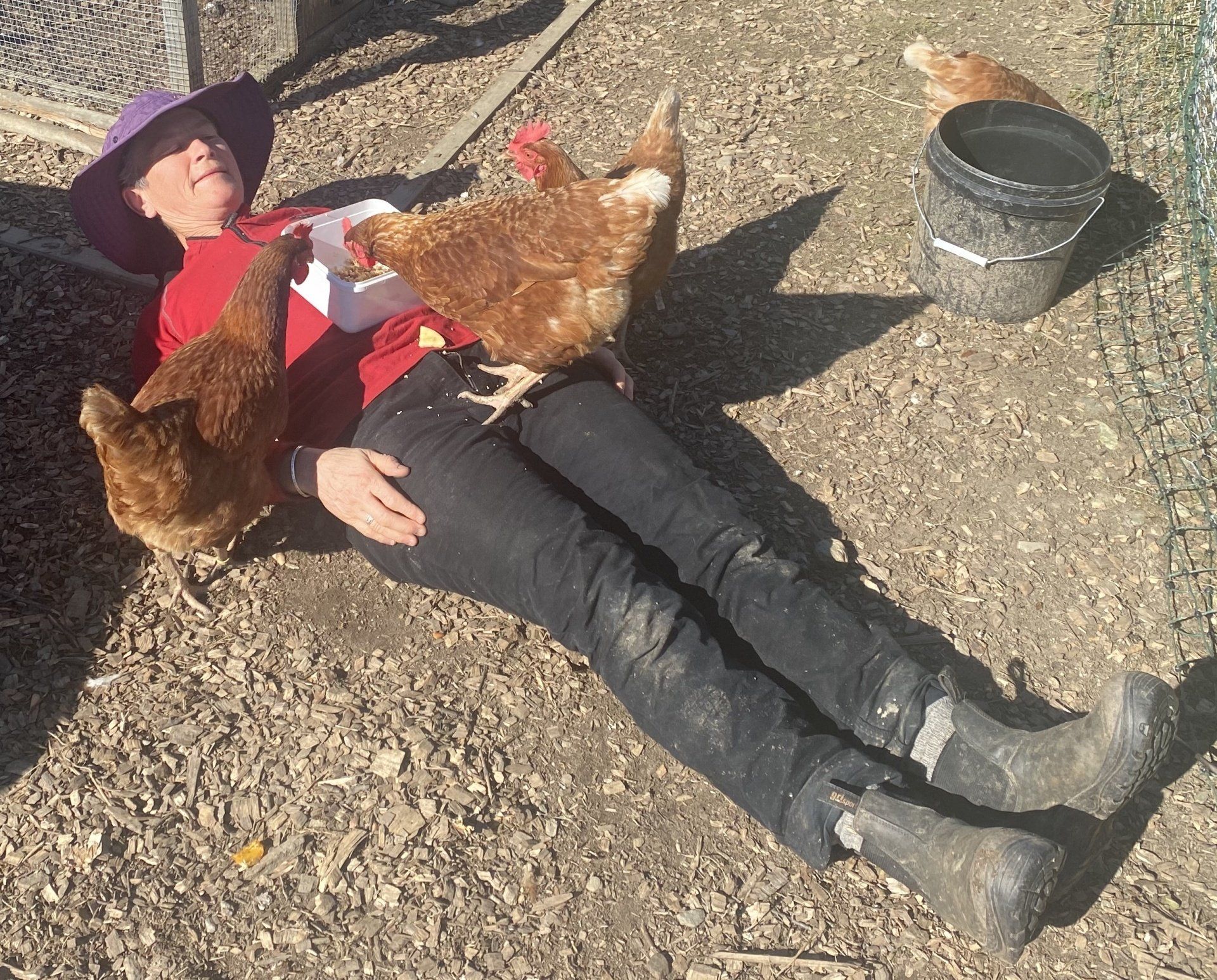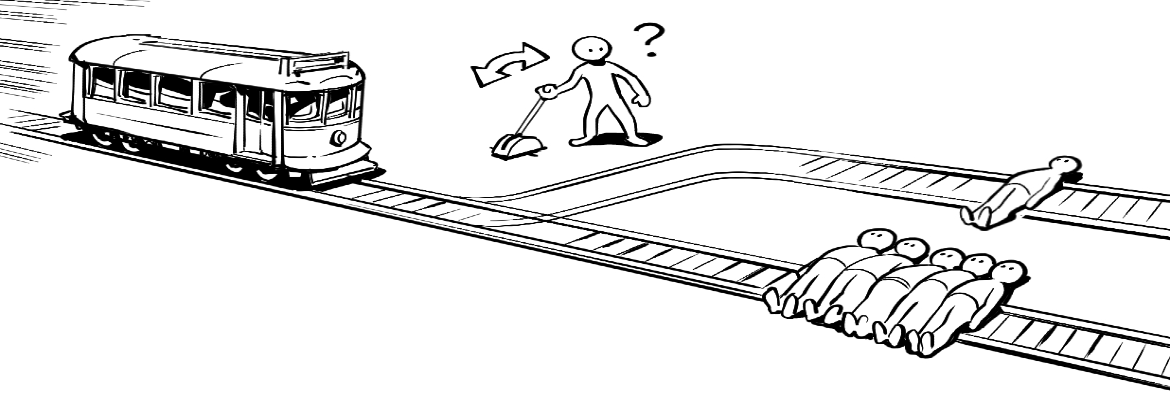Vaccination & the trolley problem

I have realised that COVID vaccination could be considered as a variation on the trolley problem. The trolley problem is a famous set of thought experiments in ethics and psychology, examining whether it is acceptable to kill a smaller number of people in order to save a larger number. The trolley problem is often referred to in the context of autonomous vehicles. Autonomous vehicles have to be able to ‘decide’ what to do in an unexpected circumstance where they could cause a human being harm. If a person runs across the road in front of the car and is too close for the car to stop before hitting them, the obvious scenario would seem to be to veer away from the pedestrian. But what say to the car’s left is a pavement full of people and to the right there is a dense stream of vehicles? What should the car do?
I would note here that if you are an autonomous train at the port in Picton, New Zealand , it is OK if you plunge into the sea without people on board.

In the classic trolley problem, there is a runaway trolley barreling down the railway tracks. Ahead, on the tracks, there are five people tied up and unable to move. The trolley is headed straight for them. You are standing some distance off in the train yard, next to a lever. If you pull this lever, the trolley will switch to a different set of tracks. However, you notice that there is one person on the side track. You have two (and only two) options:
- Do nothing, in which case the trolley will kill the five people on the main track.
- Pull the lever, diverting the trolley onto the side track where it will kill one person.
Which is the more ethical option? Or, more simply: What is the right thing to do?
This problem has been revisited with a whole lot of variations – what would you do if…
- The one person is a child and the five people are adults?
- The one person is a woman and the five people are men?
- The one person is Einstein before he invented the theory of relativity?
- The one person is your mother?
- The one person is your child?
There are lots of problems with the trolley problem. An obvious problem is that you can ask people what they ‘would do’ in a situation and it does not necessarily reflect what they would actually do. I came across this recently in a situation where surveys were run to look at uptake of organic food. In one survey, people were asked what whether they buy the products, and what factors make them more or less likely to buy them. In the other survey, supermarket purchasing information was scrutinised to see which demographics actually buy the products. The results of the two surveys were definitively not parallel – women with young children said they bought organic food, but there was no gender differentiation in the purchasing data. There is the possibility that some people being surveyed want to sound like they do the right thing, even if they don’t!
To add a further twist to the trolley problem, most conceptions of this problem do not include the possibility that the decision maker themselves could get choose to be run over i.e. self sacrifice. One study found that, if you ask the trolley problem, with Scenario 1 being – hit the switch and you die, saving 5 people, and Scenario 2 being – hit the switch and an unknown person dies, saving 5 people, the majority of people say you shouldn’t switch the tracks and kill the single person in Scenario 2. Presumably this is because the study subjects were now considering the individual on the tracks as a human being like themselves, therefore no longer being so ready to sacrifice them. It does, however, leave 5 people dying on the tracks!
Why is it I think that the revisited trolley problem has some relationship to vaccination? Because you are putting yourself in the path of risk in order for other people to not be at risk. There is a real risk, albeit small, of significant short term harm from vaccination and an unknown risk of long term harm from being vaccinated. And there’s a choice of track – vaccinate or don’t – to be made. Of course the decision is nowhere near as pared down as in the trolley problem. I visualise it as pulling the lever for a partially unknown outcome…pull it and this specific trolley isn’t going to hit the masses, it might hit you, or it might run off down a whole lot of other potential trolley tracks and miss all of you.
You can further revisit the vaccination question, as with the trolley problem, by thinking about how likely you would be to take a vaccination risk if it is to avoid one or more of your friends, or family member,s or, say, Richie McCaw or Sophie Pascoe, from dying. You don’t think any of them are likely to die, so it’s all good? I have an uncomfortable feeling here that one part of the bias in decision making, is the same factor raised early in the pandemic – those most likely to die of COVID are either old or have multiple comorbidities. Does that mean we will happily switch the trolley track to take out those who who we perceive as already sick or otherwise burdensome on society?
The trolley problem provides no solutions. However, it does provide a thought experiment in which to consider vaccination, if getting vaccinated is something that you, or other people you know, are not sure about. Maybe this trolley problem is actually like us all lying on a track; we can each can pull a lever which just might bring the trolley bearing down on us individually but which has a far greater potential to stop the trolley in its tracks entirely.






